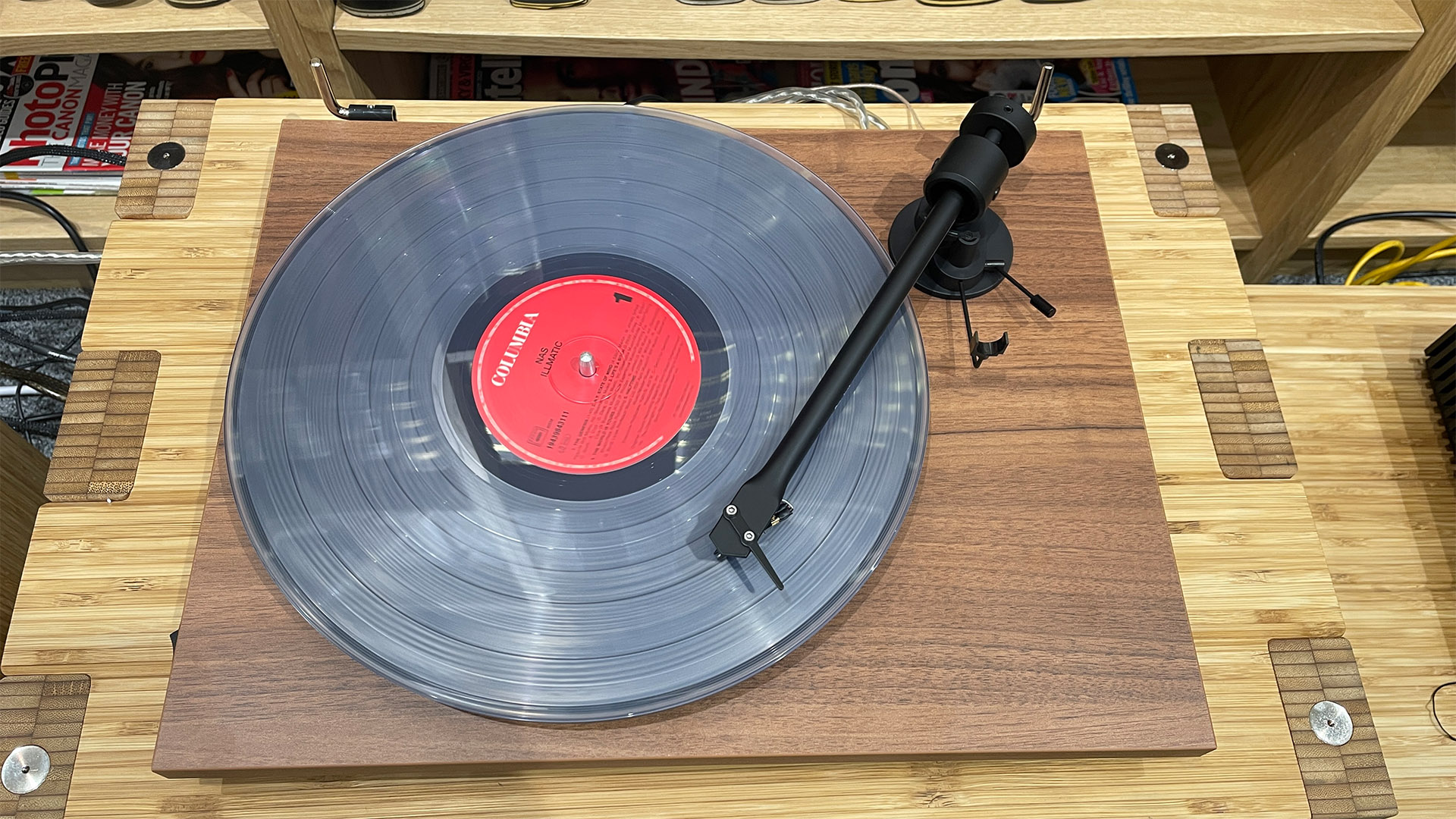Amazon Music Unlimited vs Spotify: which is better?
The streaming giants go head-to-head
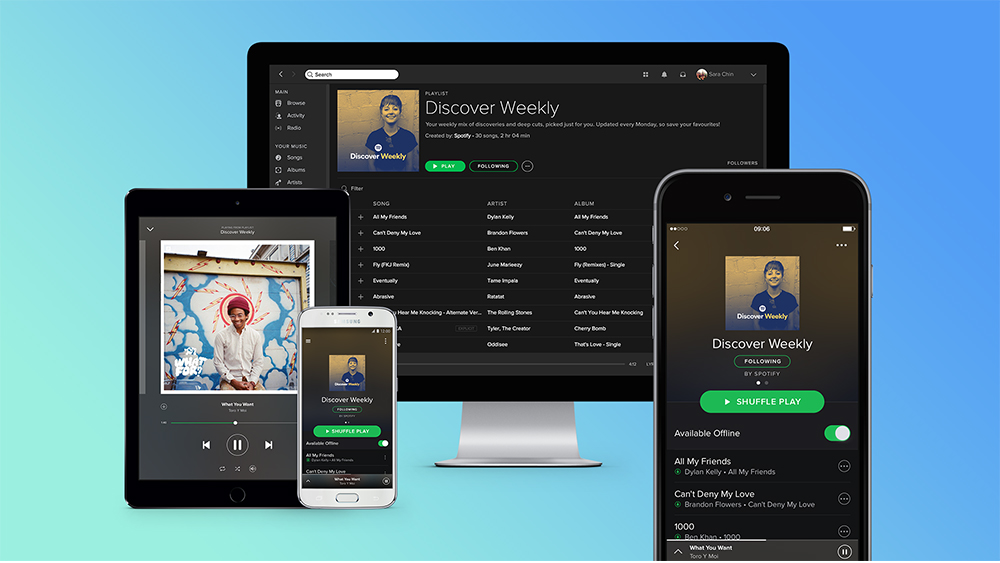
In recent times many of us have changed the way that we listen to music, swapping physical formats such as CDs for streaming services such as Spotify. Instead of "owning" music – whether physical or digital – we now pay a monthly subscription fee to access music in the cloud, allowing us to listen to millions of songs – without actually buying them.
Unsurprisingly, the popularity of music streaming has rocketed. In fact, music streaming is now the industry’s fastest-growing revenue source with an estimated 68 million people worldwide paying for a music subscription service.
Spotify is one of the biggest players in this market, but it's beginning to face stiff competition – especially now that Amazon has its own rival music streaming service called Amazon Music Unlimited. Can the tech giant knock Spotify off its perch? Let's weight up the pros and cons...
The state of play
Spotify launched back in 2008 and has grown into one of the biggest music streaming services in the world. But it's dominance is under threat as rivals fight for a piece of its pie.
Spotify's competitors now include: Apple Music, Deezer, Napster and Google Play Music, as well as Tidal and Qobuz, which specialise in hi-res music streaming. Now Spotify's has an even bigger rival – in terms of sheer firepower – in the shape of Amazon Music Unlimited.
Amazon has been selling CDs and MP3s for years, and already provides Amazon Prime subscribers with access to two million tracks as part of the deal. Now it has Amazon Music Unlimited, which expands that catalogue to 50 million tracks in return for a £9.99 a month fee.
Torn between Spotify and Amazon Music Unlimited? Read on and we'll compare these two streaming services to help you decide which is best.
MORE: Best music streaming services
Subscription plans
If you're on a tight budget, Spotify has you covered. It offers a free subscription plan supported by some (fairly annoying) adverts. Audio quality is limited to a maximum of 160kbps and you can only skip a track six times per hour on mobile devices. Still, it is free.
Step up to Spotify's £9.99 per month Premium subscription plan and audio quality shoots up to 320kbps. You also get ad-free music, unlimited search and skip, plus the option to listen offline.
Spotify also offers a Premium Family subscription for the discounted price of £14.99 per month. It covers up to six users (everyone has to live at the same address) and includes parental controls.
MORE: Spotify confirms 39 million paying subscribers
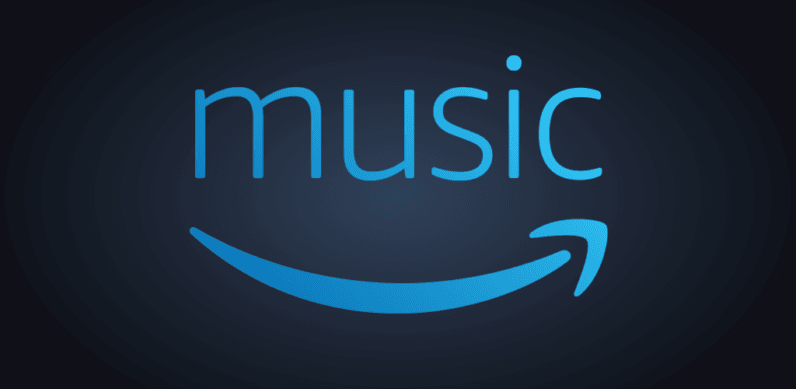
Unlike Spotify, Amazon doesn't offer a free, ad-supported subscription plan within Amazon Music Unlimited – only a free 30 day trial. Prime subscribers do, however, get free access to Amazon's more basic Prime Music streaming offering as part of their package.
A regular Music Unlimited membership will set you back £9.99 per month. However, Amazon Prime subscribers get a discount – bringing the cost down to £7.99 per month or £79 per year.
Amazon also offers a cheaper £3.99 per month subscription – but you can only use it to stream music through a single Amazon Echo or Echo Dot speaker (ask Alexa for a 'free trial'). If you want to access Amazon Music Unlimited on multiple Echo devices in your home, you'll need a regular £9.99 per month membership.
Finally, Amazon offers a Family membership plan for £14.99 per month (or £149 per year) for up to six accounts. Up to ten devices can use Amazon Music on one account, and music can be downloaded to play offline on the iOS, Android and Fire tablet platforms.
*Result: Spotify edges it*
Music catalogue
Given that Spotify launched eight years prior to Amazon Music Unlimited, you'd think it would have the bigger music library. Not so. While Spotify offers access to 40 million tracks, Amazon Music Unlimited users can take their pick from over 50 million tracks.
We didn't find any immediate gaps in either offering, and our search for more obscure music artists revealed an even success rate between Music Unlimited and Spotify.
While Spotify says it doesn't want to limit non-Spotify users by tying artists into exclusive contracts, Amazon is known for the odd premiere. Country singer Garth Brooks, for example, was a huge exclusive for Amazon Music Unlimited.
*Result: Amazon Music Unlimited wins*
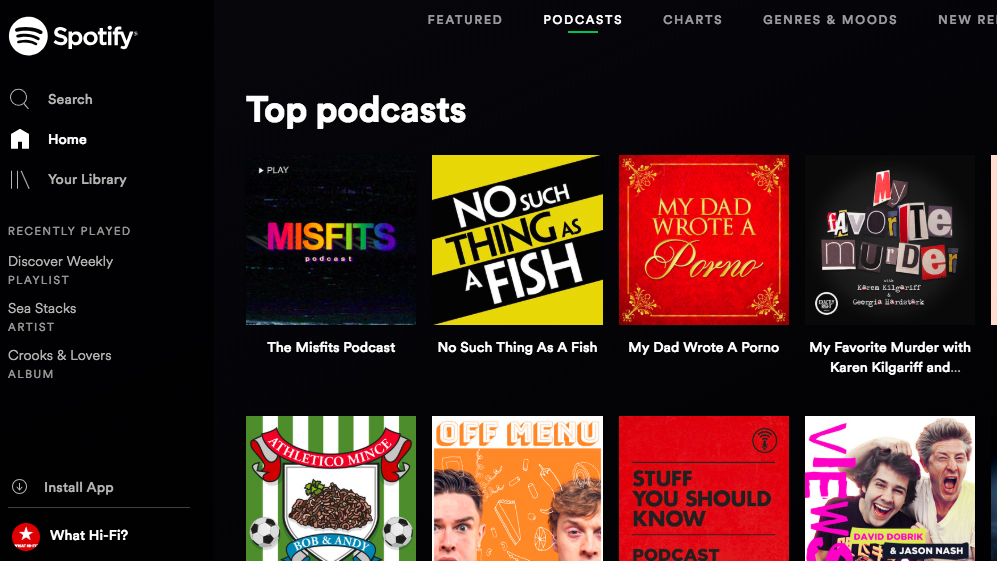
Compatibility
Spotify is accessible via both iOS and Android apps, as well as its web player. It also offers the benefit of Spotify Connect, which lets premium subscribers stream directly to speakers, TVs or systems. It’s become a familiar feature in many hi-fi and AV products – including Sonos speakers – and is a big draw for those interested in bringing streaming into their existing system.
It's also worth noting that Spotify is compatible with Alexa and Google Assistant - simply ask for the music you want "on Spotify".
Amazon Music Unlimited is compatible with smartphones and tablets via its Android and iOS apps; PCs and Macs via either its web player or desktop app; Fire tablets and Fire TVs; some BMW and Mini in-car entertainment systems; Sonos multi-room wireless speakers and Bluesound and NAD BluOS devices.
As you'd expect, Amazon Music Unlimited integrates seamlessly with Echo devices but not with Google Assistant (Amazon and Google have a rather 'tense' relationship). You can ask Alexa to play a specific song or search by mood, lyric, artists or decade. Alexa even conjures up exclusive artist commentaries dubbed 'Side-by-Sides' - the audio equivalent of a DVD commentary.
*Result: a draw*
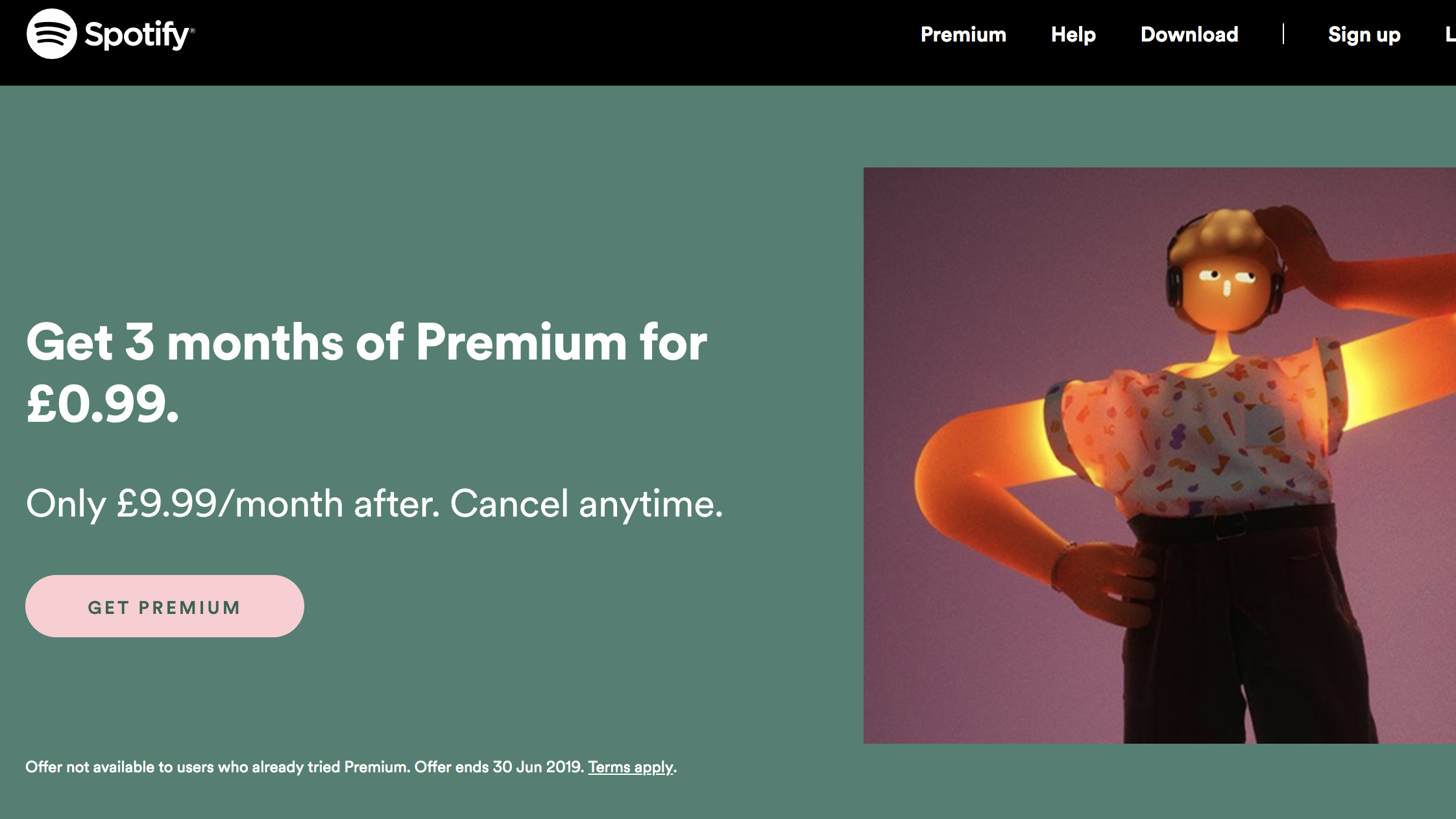
Music discovery
Spotify's USP is music recommendation. Its hugely popular 'Discover Weekly' feature uses AI and machine learning to generate a playlist of 30 songs that are relevant to your listening habits – and it's impressively accurate.
Plus, on Fridays, Spotify sends out a two-hour 'Release Radar' playlist containing brand-new music and remixes. The more you listen, the better the recommendations match your tastes.
MORE: Spotify’s new Release Radar function seeks to bring you new music
Amazon Music Unlimited is split into three main sections: ‘Browse’ (the streaming service), ‘My Music’ (your local and Cloud library), and ‘Store’. The tech giant's in-house 'Music Experts' curate thousands of playlists, while Amazon's algorithms recommended music based on your listening habits.
Bottom line, Music Unlimited's discovery features are good – but Spotify’s are more sophisticated.
*Result: Spotify wins*
Sound quality
Spotify Premium users can stream music at a data rate of up to 320kbps (CD quality). Amazon Music Unlimited is a little more cagey when it comes to streaming quality, claiming to support 'multiple bitrates' (we’d bet it’s not dissimilar from Spotify’s 320kbps streams). Listen to the two side-by-side through a budget pair of headphones and differences are barely audible.
Listen through an accomplished DAC/headphone combo, however, and Amazon Music Unlimited has a slight edge. It offers the best sound quality of the £9.99 per month services, even if the differences probably aren’t substantial enough to sway a decision by themselves.
*Result: a draw*
Hi-res audio streams
Amazon recently launched Amazon Music HD, offering 50 million 'HD tracks' tracks at a CD-quality-quality bitrate of 16 bit/44.1kHz plus millions more in 24bit and up to 192kHz (which Amazon refers to as 'Ultra HD'). It costs £12.99 per month for Prime subscribers, or £14.99 if you don't have Prime. Existing Amazon Music Unlimited subscribers can access HD tracks for an additional fee of £5 per month. We're currently putting the new service to the test so be sure to check back for our definitive verdict.
Contrast this with Spotify, who has hinted at upping its maximum quality from 320kbps but is yet to do so, and potential customers might be swayed by Amazon's package.
*Result: Amazon wins*
Verdict
So which is best? That depends on your circumstances. Spotify is the most recognisable name in music streaming and its Premium subscription offers access to 40 million songs. If you love discovering new music, Spotify Premium's comprehensive features and wide compatibility earn it the title of top all-rounder.
If you love to use Alexa devices, however, Amazon Music unlimited makes far more sense – it integrates nicely with Alexa and your existing Amazon account. It sounds a little subtler than Spotify, but the user interface on desktop and portable devices isn't always reliable. In our opinion, Spotify edges it but it's a closer contest than you'd expect.
MORE:
Apple Music vs Spotify: which is better?
25 Tidal tips, tricks and features
33 Spotify tips, tricks and features
Disney Plus: everything you need to know
Get the What Hi-Fi? Newsletter
The latest hi-fi, home cinema and tech news, reviews, buying advice and deals, direct to your inbox.
What Hi-Fi?, founded in 1976, is the world's leading independent guide to buying and owning hi-fi and home entertainment products. Our comprehensive tests help you buy the very best for your money, with our advice sections giving you step-by-step information on how to get even more from your music and movies. Everything is tested by our dedicated team of in-house reviewers in our custom-built test rooms in London, Reading and Bath. Our coveted five-star rating and Awards are recognised all over the world as the ultimate seal of approval, so you can buy with absolute confidence.

